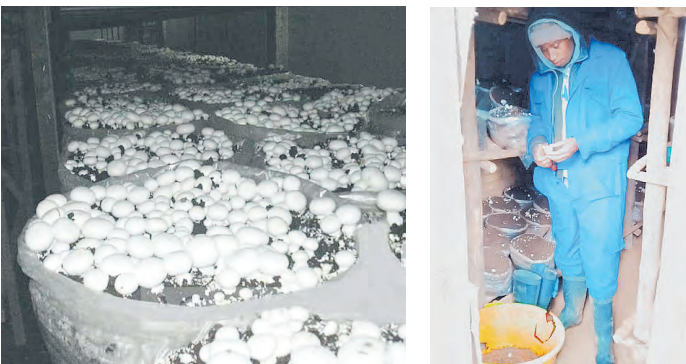A group of farmers in Kiambu county has ditched the norm to explore one of the most profitable yet less explored agribusiness ventures.
Led by their chairman Paul Mugo, the group, which includes men and women, grows mushroom in the sprawling 3,477-hectare (8,591 acres) Uplands Forest.
In an interview with KNA, the farmers revealed the journey began in 2019 when the Kenya Forest Service (KFS), in collaboration with the African Development Bank (AfDB) through the Green Zone Development Support Project Phase 2, selected Uplands Forest as one of seven sites in Kiambu for an initiative promoting sustainable livelihoods
This aligned with the Participatory Forest Management (PELIS) program, which allows communities to engage in sustainable activities—such as beekeeping and farming—in designated forest blocks while nurturing newly planted trees.
“We needed a crop that would thrive in all seasons. When we noticed people collecting soil from riverbeds in the forest for mushroom cultivation, we saw an opportunity. Mushrooms grow indoors, unaffected by extreme weather, and the funding made it possible,” said Mugo.
The farmers admitted that the venture, which has now flourished, has not been without challenges, especially in the initial years.
Verah Mburugu: How a Sh900,000 grant saved my mushroom farm in Kiserian
“We lost everything due to a lack of proper knowledge. The NGO assumed we knew what we were doing, but we had to learn the hard way,” admits Simon Mwaura, one of the farmers.
Additionally, the COVID-19 pandemic disrupted market access, affecting sales of the fungi most consumed in the Asia-Pacific region.
Despite the hurdles, the farmers soldiered on thanks to the Green Zones Project, which facilitated a one-day training for the group at Jomo Kenyatta University of Agriculture and Technology (JKUAT).
“Persistence eventually paid off,” Simon says. “Today, demand far exceeds supply. Each sack yields about half a kilogram, and by 2021, our profits allowed us to build a new structure.”
The farmers harvest their produce daily and manage 10 kilograms on slow days and up to 40 kilograms on good days.
“The mushrooms grow in distinct waves, and we sell them at Sh600 per kilogram,” says Mugo.
Mushroom farming is one of the profitable agribusinesses for anyone looking for less-saturated ventures.
The venture requires precision. A sachet of spores costing between Sh20,000 and 25,000 can inoculate 700-800 sacks filled with hay.
After 22 days in a controlled environment, where conditions are shielded from wind, direct sunlight, and strong odors that could affect growth, the mushrooms begin to sprout.
Profit from the cultivation of mushrooms depends on the variety of mushrooms farmed. Button mushrooms, though in very high demand, have a lower price compared to oyster mushrooms.
A high level of hygiene is required as bacterial infection can negatively affect mushroom harvest.
Mushrooms are rich in proteins, vitamins, and antioxidants that boost immunity and reduce the risk of chronic diseases. Their low-calorie content makes them a popular choice among health-conscious consumers.
The local market for mushrooms includes hotels and supermarkets.










